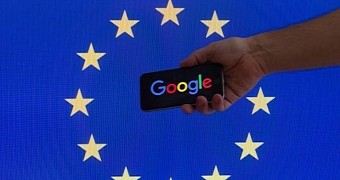Before the May 2019 European Union Parliamentary elections, Google announced its plans to add a verification process for EU advertisers designed to improve transparency around political ads.
Citizens from all across Europe will be able to vote to elect 705 Members of European Parliament (MEPs) in May 2019, and Google wants to make sure that every one of them will know who pays for the ads Google will display across its websites and services targeting this event,
Moreover, Google said in an official blog post that they'll "be working with data from Election Commissions across the member states to make authoritative electoral information available and help people find the info they need to get out and vote."
Google will also require that all ads which will be shown across the Google Ads network that also mention political parties, officeholders or candidates in the elections to explicitly state who is the entity paying for that specific ad.
"We’ll also introduce a new process to verify EU election advertisers to make sure they are who they say they are," says Google.
Google to also provide online fact-checking tools to news orgs from all EU countries
"And there’s more to come: we’ll introduce an EU-specific Election Ads Transparency Report and searchable ad library to provide more information about who is purchasing election ads, whom they’re targeted to, and how much money is being spent."
The Mountain View search giant also said that it would provide in-person security training to groups that are prone to heightened risks of phishing attacks to prevent targeted phishing campaigns to compromise their computing systems.
To do that, Google will guide all individuals related to those entities through its Advanced Protection Program designed to help users enhance their security by using a set of pre-defined measures that would prevent attackers from compromising their Google accounts.
Last but not least, the search giant will also tighten collaboration with news organizations from all 27 EU countries helping them as much as possible with online fact-checking services created to fight disinformation.

 14 DAY TRIAL //
14 DAY TRIAL //